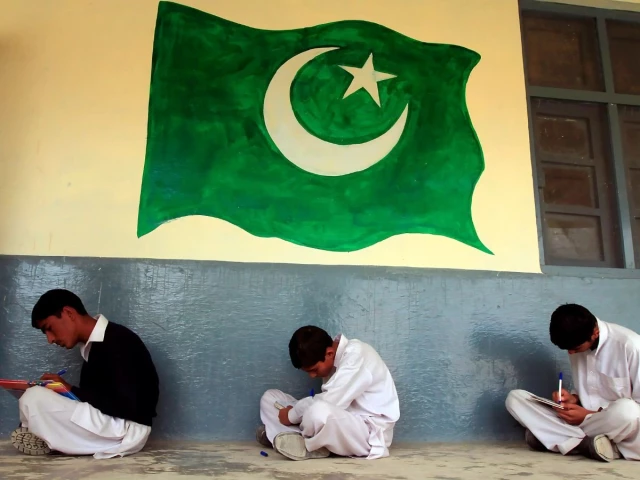With a population size larger than that of over 70 countries, Punjab’s greatest resource lies not in hydrocarbons, hydropower, or a coastline, but in its human capital. In the face of Pakistan’s ongoing developmental challenges, the strategic development of human capital is crucial for unlocking the province’s long-term economic potential.
If Punjab is to break the cycle of poverty, build a sustainable economy, and improve the quality of life for its citizens, it must invest heavily in the development of its people.
Historically, nations that have prioritised human capital development—such as South Korea, Vietnam, China, Thailand, and Indonesia—have experienced remarkable economic transformations.
Over the past three decades, these countries have lifted millions of people out of poverty through targeted investments in education, healthcare, and child development, resulting in accelerated economic growth and improved standards of living.
For Punjab, the method to success lies in drawing lessons from these success stories and replicating their strategies without reinventing the wheel.
The Need for Early and Sustained Investment
The foundational years of a child’s life represent the most critical period for human capital development. Research has consistently shown that 80% of a child’s brain develops within the first 1,000 days of life, making early childhood education (ECE) and health interventions the most effective and cost-efficient investments.
However, Punjab faces a significant challenge—nearly 40% of children in the province are stunted, with the highest prevalence observed in the southern districts. This condition severely impairs cognitive and physical development, affecting future learning and productivity.
To address this, Punjab must increase investments in both education and health for young children and their mothers. This is not merely an expenditure issue; it is a strategic necessity for future economic growth.
The provincial government must ensure greater collaboration between the ministries of education and health, scaling up existing programmes like the conditional cash transfer (CCT) initiative.
The CCT programme, which targets pregnant and lactating mothers, has proven to improve maternal and child health outcomes by providing specialised nutritious food, health check-ups, and financial assistance to improve food security during pregnancy and lactation.
A robust and fully scaled-up version of this programme can be instrumental in reversing stunting rates and improving brain development in children.
Building a Strong Early Childhood Care and Education (ECCE) Framework
One of the most compelling arguments for investing in human capital is the high return on investment that education offers, especially in the early years.
Studies show that every pound spent on early childhood education yields a return of £13. Yet, in Punjab, the allocation for early childhood education (ECCE) remains shockingly low, with only 1-3% of the provincial education budget dedicated to pre-primary education.
This neglect leads to poor-quality early education services, leaving children ill-prepared for the educational challenges that lie ahead.
In line with international best practices, Punjab must raise its ECCE budget allocation to at least 10% of the total education spending, as recommended by UNESCO.
A dedicated budget line for ECCE should be established, and provincial education policies must ensure the availability of high-quality, accessible, and affordable early childhood programmes.
Such an investment would lay a strong foundation for future learning outcomes and allow children to enter primary school with the cognitive, social, and emotional skills necessary for success.
Parental involvement plays a crucial role in a child’s educational development, particularly in the early grades. Research from rural Punjab indicates that when parents are provided with information about their child’s progress and the quality of their local schools, learning outcomes improve significantly.
Parents who are actively engaged in their children’s education tend to have higher expectations for academic success and contribute more to school-related activities.
To leverage this potential, actually, the provincial government has prioritised similar initiatives that empower parents with information about available health facilities & health services and other incentives offered at the child’s conception stage, and readiness of school facilities to receive their child’s entry into school and their child’s learning, their schools' performance, but implementation of these initiatives needs more attention from the head of the province.
What matters most is the ownership at the top of the hierarchy and then strengthening home-school partnerships, which will have a lasting impact on foundational learning outcomes and foster a culture of accountability and high academic standards, translating into productive resources for the economy and society.
The success of any human capital strategy hinges on strong political will, a clear vision, and effective coordination across multiple sectors.
In Punjab, the provincial leadership must take ownership of this agenda and champion investments in human capital as a top priority. Human capital development should be integrated into every aspect of the province’s development planning, from education to healthcare, and from infrastructure to social welfare.
Only through sustained, multi-year investment and unwavering political commitment can Punjab hope to address its human capital challenges and pave the way for sustainable economic growth.
Punjab’s future depends on the province’s ability to develop and harness its human capital. By investing in early childhood education, foundational learning, scaling up health and nutrition programmes for mothers and children, and involving parents in the educational process, Punjab can create a virtuous cycle of human development that drives economic growth and lifts millions out of poverty.
The province should learn from the experiences of East Asian economies and adopt a clear, actionable plan that focuses on early interventions, sustained investment, and whole-of-government coordination.
The province has the potential to harness the power of its people, and with strategic, long-term investments in human capital, Punjab can realise its economic and social potential—transforming from a resource-rich yet underdeveloped region into a beacon of sustainable growth and prosperity.
The time to act is now, and with a message, the chief minister herself is leading the Human Capital Development initiative.



COMMENTS
Comments are moderated and generally will be posted if they are on-topic and not abusive.
For more information, please see our Comments FAQ